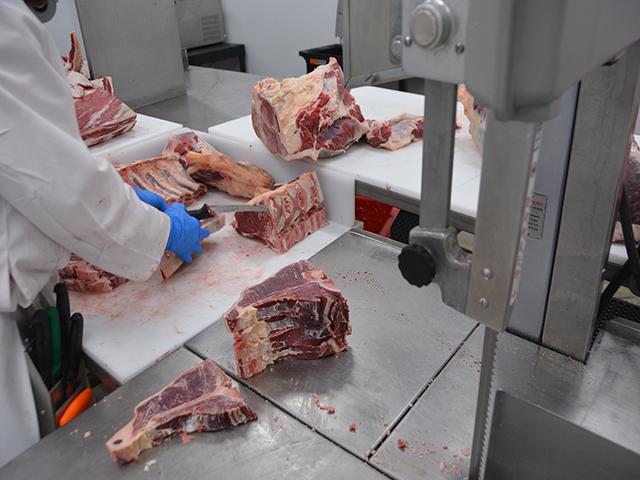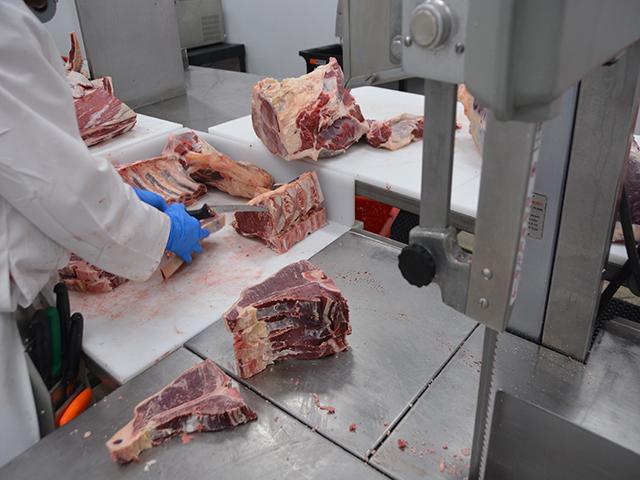Ag Policy Blog
USDA Announces Latest Round of Small Meat-Processing Grants
USDA continuing to its push to help expand small local meat and poultry processors with a new round of grant funding releases Thursday.
USDA announced $110 million for 57 various small processors across the country through two different programs, the Meat and Poultry Processing Expansion Program (MPPEP) and the Local Meat Capacity (Local MCap) Grant Program.
Agriculture Secretary Tom Vilsack announced the grant and loan awards on a call Thursday with reporters. The funding, Vilsack said will help "this effort to expand significantly opportunities for local and regional food systems, all of which help to provide lower costs for working families, create a more resilient food system and help opportunities for farmers to have more new and better markets," Vilsack said.
Vilsack said the push has been to bolster local competition. "We know that for far too long there have been marketplace abuses in concentrated markets that have really disadvantaged customers and farmers as well."
To date, USDA has invested a total of over $700 million in 48 states and Puerto Rico for projects that help to expand the nation's independent meat and poultry processing capacity, the department stated.
Under the MPPEP, 24 facilities across 15 states will split $83 million in grants and loans. That includes Fitch Ranch Artisan Meats in northwest Colorado, which processes hogs, cattle and lambs. A $7 million grant will help Fitch build a new facility and add 65 jobs.
Another facility, Noah's Ark Processors in Hasting, Neb., will receive $10 million. Noah's Ark is one of just three Kosher beef distributors nationally. The grant will help the facility double its processing capacity and add 40 new jobs as well. The facility also will be able to serve another additional 54 local livestock producers.
The Minnesota Farmers Union also is receiving more than $600,000 for a red-meat modular processing facility. The facility will work with a meat-cutting program at Central Lakes College in Minnesota to train students to cut meat and work in apprenticeships.
Under the Local MCap grant program, USDA also released $26.9 million for 33 projects acoss 23 states. These are largely smaller awards. Recipients, for instance, can receive funding for $10,000 up to $250,000 to purchase new processing equipment such as meat grinders, coolers or smokers. Larger awards from $100,000 to $5 million can also go to increasing processing capacity.
P[L1] D[0x0] M[300x250] OOP[F] ADUNIT[] T[]
Among the recipients is White Oak Pastures in Bluffton, Ga., which raises cattle, hogs, sheep, poultry and organic vegetables. The facility also has USDA meat and poultry processing plants and received a grant to convert its poultry processing facility to a dual-use facility that can also process hogs, lambs and goats.
Will Harris, owner of White Oak Pastures, said on the call he's the fourth generation of his family to manage the farm, which also has a general store and restaurant.
"I'm very grateful that we were selected to receive this grant to be used to make improvements on our processing operations," Harris said.
He added that White Oak Pastures is the largest employer in one of the poorest counties in the country. "A lot of people will benefit from this grant."
On the call, Vilsack also was asked about conflicting goals within the Biden administration. House Agriculture Committee Chairman Glenn "GT" Thompson, R-Pa., on Wednesday pointed out in a hearing that USDA is providing money to increase meat processing while EPA is issuing new regulations on effluent from packing plants. Thompson suggested the new regulations could put processors out of business.
Vilsack said Congress and the courts have directed EPA to protect water quality. He said a USDA report showed "very little impact on processing capacity" from the EPA rule. Perhaps "a handful of processors" could be forced to shutdown over the rule, but Vilsack said, "The vast, vast majority of processing facilities will not be shutdown." He added, "I think that's a bit of exaggeration by the chairman."
Harris also commented, saying his on-the-farm processing operation generates about nine tons of packing plant effluent a day. That is used as a fertility source composed on the farm and eventually spread as fertilizer.
"The organic matter in my soil on this land has gone from 1/2 percent organic matter to over 5% organic matter," Harris said. "That on-farm composting of packing-plant waste is a great credit to that."
For more information on the grants, and links to the MPPEP and Local MCap programs, go to https://www.usda.gov/…
Chris Clayton can be reached at Chris.Clayton@dtn.com
Follow him on social platform X @ChrisClaytonDTN
(c) Copyright 2024 DTN, LLC. All rights reserved.






Comments
To comment, please Log In or Join our Community .